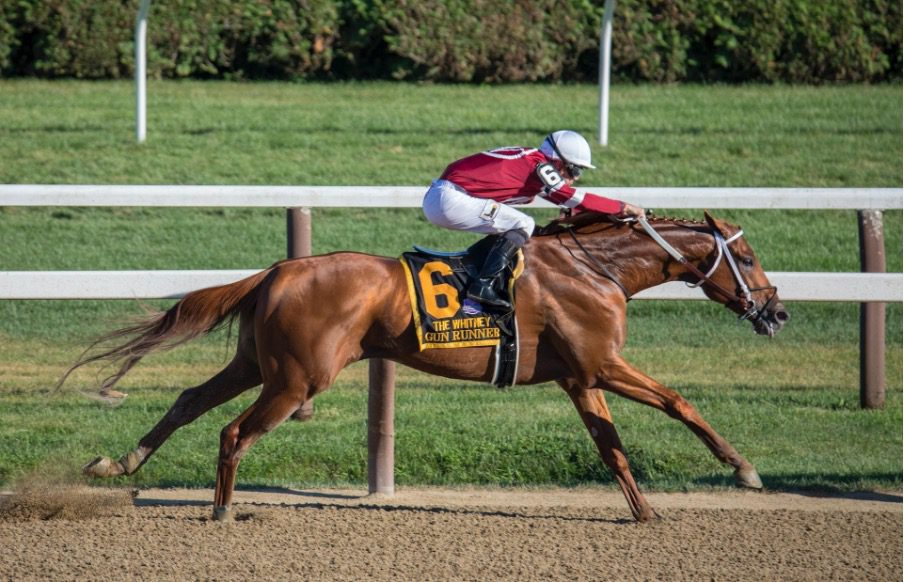Preparation is important for a number of reasons when it comes to getting a horse ready for race day. First, it helps to ensure the horse's physical and mental well-being. A thorough physical examination can identify any potential health issues that could affect the horse's performance. And a conditioning program helps to build up their endurance and strength. Proper nutrition is also essential for maintaining the horse's overall health and supporting their training.
Proper preparation can also improve the horse's performance on race day. Familiarizing the equine with the starting gate process and the racecourse can help them feel more comfortable and confident on the day of the event. A clean, well-groomed horse is also more likely to feel happy and focused.
This way, you will help to reduce the risk of accidents or injuries during the race. Proper equipment, such as a well-fitting saddle and bridle, can help to ensure the horse's safety. Transport arrangements should be made carefully to minimize stress on the horse. While the cost of a racehorse can be significant, the rewards of seeing your horse perform at their best on the track can be well worth the investment.
Preparing Your Horse for the Race—the Main Stages
There are several factors to consider and tasks to complete in the weeks leading up to the event. Here are the crucial stages you should consider.
Begin With a Thorough Physical Examination
This should be done at least a few weeks before the race to allow for any necessary treatments or adjustments to be made. The examination should include checking the horse's overall health and fitness, as well as their hooves, teeth and legs.
Start a Conditioning Program
Depending on the distance and type of race, the horse will need to be in peak physical condition. This means regular exercise and training sessions to build up their endurance and strength.
Choose the Right Equipment
The right riding gear can make all the difference on race day. This includes a proper racing saddle, bridle and bit. Make sure everything fits properly and is in good condition.
Practice Starting Gate Procedure
It's important for the horse to be comfortable and familiar with the starting gate process. Practice loading into the gate and standing calmly while the doors open.
Familiarize Horse With the Racecourse
If possible, take the horse to the track where the race will be held to allow them to get a feel for the surface and layout.
Pay Attention to Diet and Nutrition
In the weeks leading up to the horse race, make sure the equine is getting the proper nutrition to fuel their training and support their overall health. This may include supplements in addition to their regular feed.
Grooming Is Important
A clean, well-groomed horse is a happy and confident one. Make sure to brush and groom the equine regularly, paying special attention to their mane and tail.
Transport the Horse Safely
If the race is being held at a different location, plan for the safe transportation of the horse. This may involve hiring a professional hauler or using a trailer.
Consider Hiring a Professional Trainer
A professional trainer can help ensure that the horse is properly prepared and in top condition for race day. They can also provide valuable guidance and support for the owner.
Don't Forget About the Mental Aspect
A confident and focused horse is more likely to perform well on race day. Spend time bonding with the horse and building trust. And try to minimize any sources of stress in the days leading up to the horse race event.
Racehorse Training Tips To Follow
Training is an integral part of preparing your horse for race day. Here are some tips for training your equine effectively:
- Start with a clear goal in mind. Before you begin training, get a clear understanding of what you want to achieve. This may include building up the horse's endurance for a longer race or focusing on speed for a shorter event.
- Develop a structured training plan. To reach your training goals, it's important to have a structured plan in place. This may include a specific number of workouts per week, as well as a mix of different types of exercises.
- Gradually increase intensity. Build up the horse's fitness gradually to avoid overloading them. Start with shorter, easier workouts and gradually increase the intensity and duration over time.
- Mix up the training routine. To keep things interesting and prevent boredom, try to add some versatility. This may include incorporating different types of exercises, such as hill work or sprints. You can also consider varying the terrain and location of workouts.
- Use proper warm-up and cool-down techniques. They will help to prevent injuries and improve performance. This may include stretching, walking or trotting before and after workouts.
- Monitor the horse's progress. Regularly assessing the horse's progress can help you to finetune the training plan. This way, you can make any necessary adjustments. This may include monitoring the horse's vital signs, such as heart rate and respiratory rate, as well as their overall fitness and performance.
- Don’t overdo it. Proper rest at the horse barn and recovery are essential for the horse's physical and mental well-being. Taking rests can help to prevent injuries and burnout.
Conclusion
Preparing a horse for race day requires a combination of physical conditioning, proper equipment, nutrition and mental preparation. Training is a crucial part of this process and involves setting clear goals. You should develop a structured plan, gradually increase intensity, mix up the routine, use proper techniques and monitor the horse's progress. By following these handy steps, you can help your equine reach their full potential and have a successful race day.


